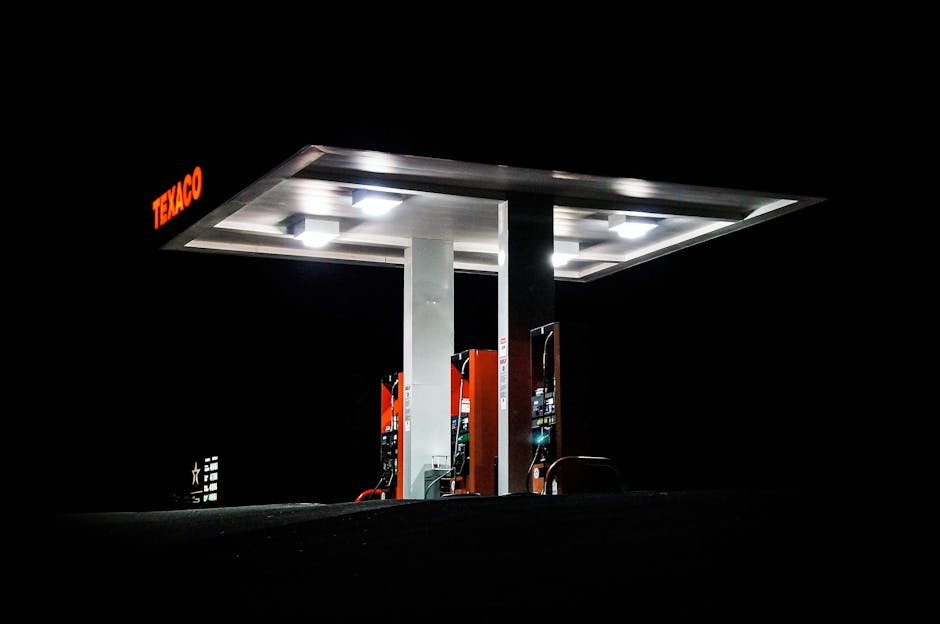[Helpful information related to the current article]
Did you know that improving your fuel efficiency can not only save you money on gas but also contribute towards reducing your carbon footprint? Maximizing Fuel Efficiency: A Comprehensive Guide to Testing and Improving Fuel Economy is here to help you achieve just that. Whether you’re a daily commuter or a long-distance traveler, this guide will provide you with valuable information on how to make the most out of every drop of fuel. Let’s dive in and uncover the secrets of maximizing your fuel efficiency today!
The Origin of Fuel Efficiency Test
Early Efforts
The concept of fuel efficiency testing dates back to the early days of the automobile industry. As cars became more widespread, it became clear that the amount of fuel consumed directly impacted the cost of travel. This led to the development of the first fuel efficiency tests, which aimed to measure the distance traveled per unit of fuel consumed.
Standardization and Regulations
Over time, fuel efficiency testing evolved into a standardized procedure, with various organizations and regulatory bodies establishing specific protocols. These protocols not only ensured consistency in testing methods but also allowed for accurate comparison between different vehicle models. Today, fuel efficiency is a crucial factor in the automotive industry, with many countries implementing regulations and standards to promote better fuel economy.
Current Trends and Statistics
Rising Fuel Costs
With the increasing global demand for oil and the limited availability of resources, fuel costs have been steadily rising in recent years. This has led to a greater awareness of fuel efficiency among consumers who are seeking ways to save money on gas expenses.
The Importance of Carbon Footprint
In addition to cost considerations, the focus on reducing carbon emissions has become a priority for many individuals and organizations. Fuel efficiency plays a crucial role in minimizing the carbon footprint of vehicles, making it an essential aspect of sustainable transportation solutions.
Practical Tips for Maximizing Fuel Efficiency
Optimize Your Driving Habits
One of the most significant contributors to fuel efficiency is driving habits. Simple adjustments, such as avoiding aggressive acceleration and maintaining a steady speed, can have a significant impact on your vehicle’s fuel consumption. Additionally, reducing idling time, especially in traffic, can result in substantial fuel savings.
Maintain Your Vehicle
Regular vehicle maintenance is essential for optimal fuel efficiency. Keeping your tires properly inflated, performing regular oil changes, and ensuring your engine is in good condition can all contribute to better fuel economy. Additionally, using the recommended grade of motor oil and replacing air filters regularly will help your vehicle operate more efficiently.
The Future of Fuel Efficiency Test
Advancements in Electric Vehicles
As electric vehicles (EVs) continue to gain popularity, advancements in battery technology and charging infrastructure will play a vital role in fuel efficiency. Improvements in range and charging speed will provide EV owners with increased confidence and convenience, further promoting the adoption of these cleaner alternatives to traditional gasoline-powered vehicles.
Integration of Artificial Intelligence
The integration of artificial intelligence (AI) in vehicles holds great potential for fuel efficiency. AI-powered systems can analyze real-time data from various sensors and optimize vehicle performance, enabling more efficient fuel consumption. This technology can adjust factors such as engine output, aerodynamics, and even route planning to maximize fuel economy.
By understanding the origin of fuel efficiency testing, analyzing current trends and statistics, implementing practical tips, and exploring future predictions, you can not only save money on gas but also contribute to a greener future. Investing in fuel efficiency today will benefit both your wallet and the environment in the long run.
Final Thoughts on Fuel Efficiency Test
Fuel efficiency tests are crucial for determining the true efficiency and environmental impact of vehicles. These tests provide valuable data that can help consumers make informed decisions about their vehicle purchases, as well as inform policy and regulatory decisions regarding vehicle emissions. By understanding how fuel efficiency tests work and the factors that can influence their results, individuals and organizations can work towards improving overall fuel efficiency and reducing the environmental impact of transportation.
Further Reading and Resources
1. “Fuel Efficiency Testing: A Comprehensive Guide” – This guide provides an in-depth look at fuel efficiency testing, including test procedures, equipment, and factors affecting test results. A must-read for anyone interested in understanding the intricacies of fuel efficiency testing.
2. “Fuel Efficiency Standards and Regulations” – This resource outlines the current fuel efficiency standards and regulations in different countries, providing insight into the efforts being made to improve vehicle efficiency and reduce emissions.
3. “Tips for Improving Fuel Efficiency” – This article offers practical tips and techniques that drivers can use to improve the fuel efficiency of their vehicles, helping them reduce their carbon footprint and save money on fuel costs.
4. “Advancements in Fuel Efficiency Testing Technologies” – This resource highlights the latest advancements in fuel efficiency testing technologies, including new equipment and techniques that can provide more accurate and reliable test results.
5. “The Future of Fuel Efficiency Testing” – This article explores emerging trends and technologies that may shape the future of fuel efficiency testing, offering a glimpse into what we can expect in terms of more accurate and comprehensive testing methods.
[Other information related to this article]
➡️ Optimizing Your Car’s Performance: Testing and Tuning Techniques






